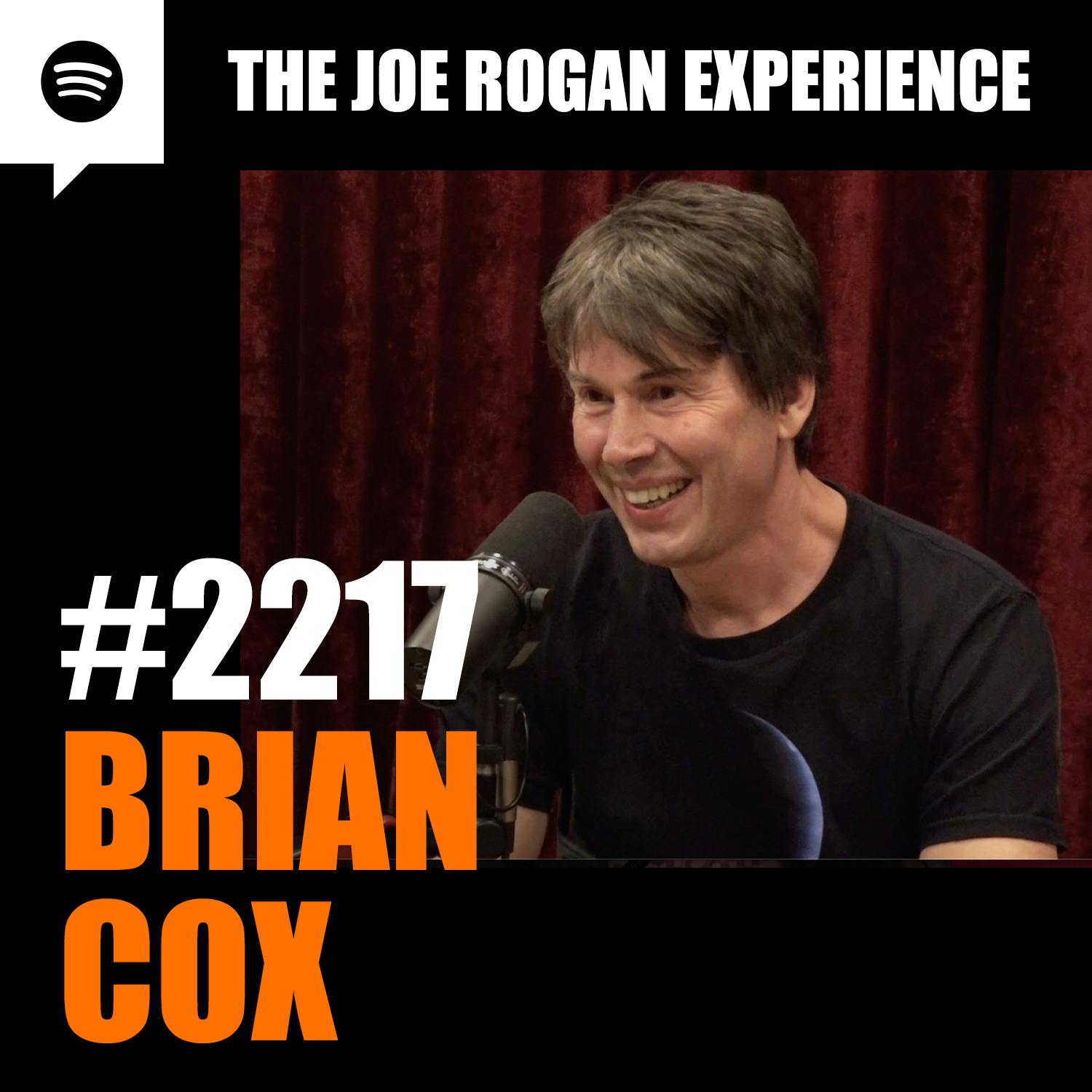
#2363 - David Kipping
David Kipping is an astronomer and associate professor at Columbia University, where he leads the Cool Worlds lab.
www.coolworldslab.com
Get anything delivered on Uber Eats.
Take 50% off a SimpliSafe system at Learn more about your ad choices. Visit podcastchoices.com/adchoices
Related Episodes
Categories
Key Takeaways
The James Webb Space Telescope has provided unprecedented insights into early galaxies.
This challenges previous understandings of cosmic evolution and galaxy formation.
The existence of supermassive black holes at early cosmic times suggests new physics.
It indicates that our current models of the universe's age and formation may be flawed.
Mini-Neptunes are a common type of planet in our universe.
Understanding their characteristics can help us learn more about planetary formation.
The James Webb Space Telescope has enhanced our ability to discover exoplanets.
This technology allows astronomers to capture direct images of distant planets, expanding our knowledge of the cosmos.
The unpredictability of planetary placement challenges existing theories.
This highlights the limitations of Bode's law in explaining exoplanetary systems.
Episode Timestamps
Exploring the Mysteries of the Universe with James Webb Telescope
- The James Webb Space Telescope reveals galaxies formed shortly after the Big Bang.
- Supermassive black holes are being discovered earlier than previously thought possible.
- Current cosmological models may need revisions based on new astronomical data.
Exploration of Exoplanets and Solar System Dynamics
- Discussion on the characteristics of mini-Neptunes and their prevalence in the universe.
- Insights into the discovery of exoplanets around nearby stars like Alpha Centauri.
- Examination of Bode's Law and its implications for planetary spacing in solar systems.
Exploring Exoplanets and the Formation of Solar Systems
- Bode's law predicts planetary placement but lacks consistent observational support.
- Exoplanets are common, with Kepler mission revealing thousands across the galaxy.
- The formation of stars and planets involves complex gravitational interactions and processes.
Exploring the Origins of Stars and Future of Space Exploration
- Discussion on the formation of the first stars in the universe.
- James Webb Telescope's potential to detect primordial stars.
- Innovative concepts for interstellar travel and imaging distant planets.
Exploring Extraterrestrial Life and Advanced Technology
- Discussion centers on the possibility of advanced extraterrestrial civilizations.
- Exploration of human understanding of technology and UFO sightings.
- Mention of anthropological perspectives on observing intelligent life.
Discussion on UFOs, government secrecy, and human evolution
- Drones and UFO sightings raise questions about government transparency and public safety.
- Human history is marked by competition and innovation driven by conflict and survival.
- The potential of alien civilizations monitoring humanity poses existential questions.
Exploring the Future of Intelligent Life and Technological Innovation
- Discussion on the detection of supernovae and their significance in astronomy.
- Exploration of the traits of intelligent life across the universe.
- Reflection on societal behaviors related to materialism and technological progress.
Exploring the Future of Intelligence and Artificial Life
- Discussion on the evolution of intelligence and its implications for humanity.
- Speculation about artificial life forms and their potential impact on society.
- Concerns regarding the energy demands of AI and its survival instincts.
Exploring AI, the Universe, and Human Existence
- The universe's vastness raises questions about the existence of extraterrestrial life.
- AI technology's rapid advancement poses ethical and cognitive challenges for humanity.
- Current societal issues, including population decline and environmental concerns, complicate our future.
Debate on the Nature of 'Oumuamua and Alien Life
- Discussion centers around the classification of 'Oumuamua as a comet or asteroid.
- Avi Loeb's controversial theory suggests potential alien technology involvement.
- The podcast highlights future missions to explore interstellar objects.
Exploring the Possibility of Extraterrestrial Life and Simulations
- Discussion on the Rosetta mission and its relevance to understanding comets.
- Speculation on the existence of life forms in the universe, including fungi.
- Debate on the simulation hypothesis and its implications for reality.
Exploring the Concept of Reality and Simulation Hypotheses
- The discussion centers on the possibility of reality being a simulation.
- Generative AI advancements raise questions about consciousness and existence.
- Theories like Boltzmann Brains challenge our understanding of reality.
Exploring the Evolution of Civilizations and Cosmic Life
- Discussion revolves around the emergence of civilizations and their environmental dependencies.
- The potential existence of past civilizations on Earth raises intriguing questions.
- Human innovation and critical mass are essential for technological advancements and civilization growth.
Exploring Humanity's Future and Perception of UFOs
- Discussion on how human perception shapes our understanding of UFO sightings.
- Insight into the potential future of humanity and our evolution.
- Exploration of cultural phenomena surrounding extraterrestrial life and technology.
Exploring UFOs and the Overton Window Shift
- Discussion on the credibility of UFO sightings and media coverage.
- Mention of ball lightning and its relation to UFO phenomena.
- Impact of the New York Times report on public perception of UFOs.
Exploring Alien Theories and Scientific Discoveries in Space
- Discussion centers on the implications of high-altitude nuclear tests and their failures.
- The concept of aliens is presented as an unprovable yet compelling hypothesis.
- James Webb Telescope advancements are highlighted as key to exploring extraterrestrial life.
NASA's Budget Challenges and the Future of Space Exploration
- NASA's original budget ballooned from $800 million to $10 billion due to mismanagement.
- The White House proposed drastic cuts to NASA's science budget, threatening missions.
- Future space projects require better funding and innovative technology to succeed.
Exploring Control and Competition in Resources and Science
- Discussion on the illusion of control by the 1% and systemic resource issues.
- Insight into how competition drives innovation in science and podcasting.
- Critique of human behavior and territorial instincts impacting global challenges.
Martial Arts Teachings on Competition and Personal Growth
- Martial arts can transform negative feelings into productive energy and self-mastery.
- Competition drives personal improvement, both in martial arts and podcasting.
- Cooperation among peers enhances growth, creating a supportive community for success.
The Role of Comedy in Science Communication
- Comedians can enhance scientific communication by making it more relatable and engaging.
- Many brilliant scientists struggle with public speaking despite their expertise.
- Vulnerability and personality in communication help connect with audiences effectively.
The Impact of Social Media on Youth and Authentic Content Creation
- Social media's influence on youth mental health is increasingly concerning.
- YouTube allows creators to express authentic voices and connect with audiences.
- The shift in children's aspirations towards becoming influencers highlights societal changes.
People Mentioned
Joe Rogan
Podcast Host
Unnamed guest
Astrophysicist
James Webb
Space Telescope
Scott Tremaine
Dynamicist
Carl Sagan
Science Communicator, Astronomer, Astronomer, Astrophysicist
Unnamed Speaker
Podcaster, Commentator, Martial Artist
Marc Andreessen
Entrepreneur, Investor
Avi Loeb
Astrophysicist, Author
Adam Frank
Author, Astrophysicist, Theorist
Anton Petrov
Content Creator
Richard Dolan
Author, Researcher
Joe
Podcast Host
Jimmy Carr
Comedian
Ricky Gervais
Comedian
Places Mentioned
Alpha Centauri
Star System
Mauna Loa Observatory
Observatory
Books Mentioned
UFOs
Adam Frank
Not specified
Richard Dolan
The Coddling of the American Mind
Jonathan Haidt
Notable Quotes
"Imagine that. 100 million suns born died, gone entire life cycle, died, collapsed black hole."
Discussing the formation of supermassive black holes shortly after the Big Bang.
"Every time built telescope is, know, 10 times precise last thing, every time done that, surprised."
Reflecting on the advancements in telescope technology and its impact on discoveries.
"Wow. that's kind weird, right? mean, seems like there's many aspects solar system unusual."
Discussing the oddities of planetary systems
"Like, shut up. trying get people click that."
Commenting on sensationalized headlines related to astronomical discoveries
"Gravity wants to make everything get denser, denser, denser."
Discussing the gravitational forces involved in star formation.



